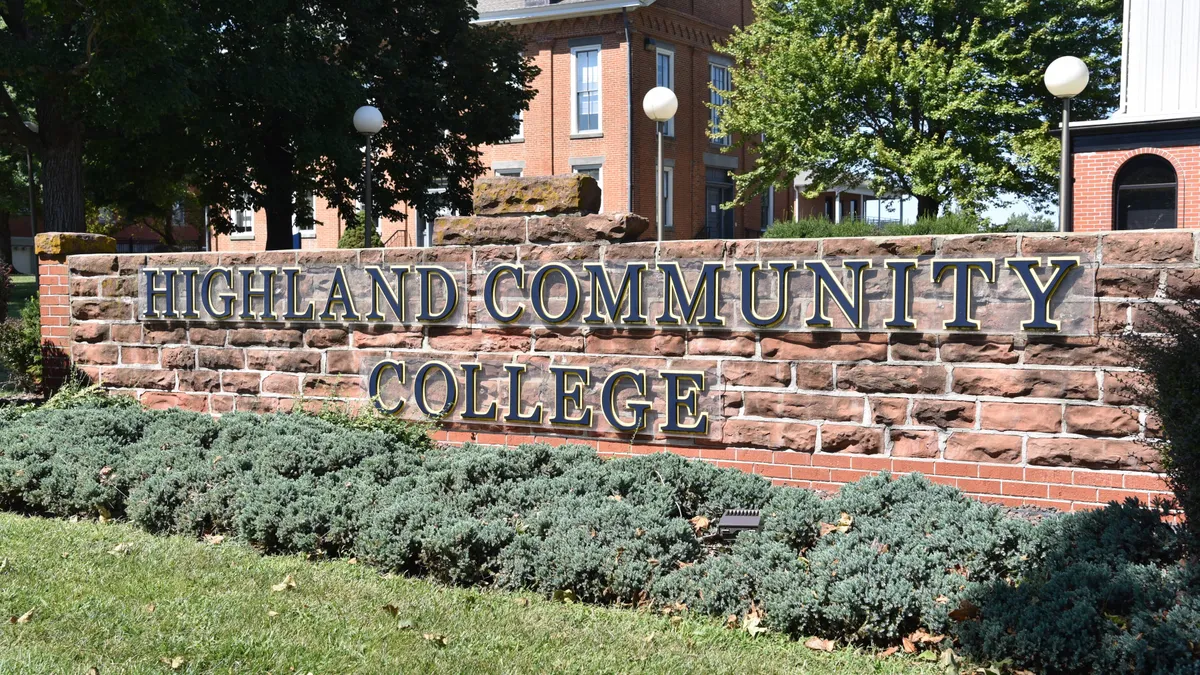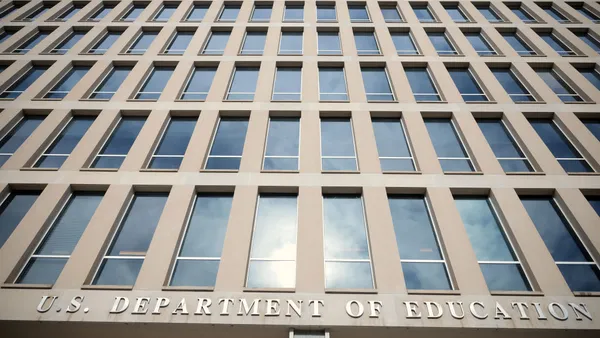Dive Brief:
- A Kansas community college has settled with the U.S. Department of Justice over allegations it discriminated against Black students, primarily athletes, who were removed from campus housing or expelled, the agency said Monday.
- Highland Community College targeted Black students for “searches and surveillance” and more severely disciplined them than their White peers, the Justice Department alleged. The college will need to rework its processes for responding to complaints of racial prejudice and ensure trained staff handle them.
- President Deborah Fox said in a statement Monday that “there is always room for improvement.” “Our student body is the most important part of the Highland Community College experience,” Fox said. “We want to ensure that all students feel welcome to learn, develop, and thrive as they take important steps in their educational journey.”
Dive Insight:
Highland Community College has been under scrutiny for its treatment of Black students for years. In 2020, Kansas’ branch of the American Civil Liberties Union sued the institution over “rampant racial harassment and discrimination” committed or endorsed by top college officials.
The ACLU’s lawsuit on behalf of Black attendees accused the college of disciplining students in a “racially discriminatory manner” while trying to force Black athletes out of the school and replace them with White athletes.
Highland Community College enrolled about 2,300 students in fall 2022, and 11% were Black or African American, according to federal data.
It settled that lawsuit in 2021. Highland also settled a complaint filed in 2022 by three former basketball coaches who alleged the college was trying to whittle down the number of Black athletes.
Around the same time, Fox, the president, was caught on a leaked audio recording comparing a Black football player to Adolf Hitler, whom she referred to as “a great leader.”
She later apologized.
Assistant Attorney General Kristen Clarke said in a statement Monday that no “student should have their educational experience marred or disrupted by discrimination based on their race.”
“Community colleges are an important pathway to four-year institutions and the workforce, and federal law requires that their campuses, programs and activities be equally available to all without regard to race,” Clarke said.












